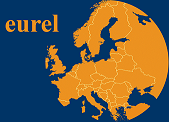The role of religions in the public sphere as well as the place and models of religious education (RE) in the school curriculum have been widely discussed and debated topics in Finland. Secularisation and immigration have altered Finnish religious landscape enormously during the past three decades. Previously mainly Lutheran Protestant population represents now a multitude of cultures and sub-cultures, languages, religions and worldviews, as well as a growing number of religiously unaffiliated people. In the space of ten years, the number of religious ‘nones' has doubled to one million, representing now one fifth of the Finnish population. The implication of this change has not been entirely understood in Finnish policymaking especially in the field of education.
Finland has a unique way to organize RE in European level, as the subject is taught according to pupils' religious affiliation. This means that there can be several different RE lessons taking place in a school at the same time and pupils are divided into different classes. Presently there are 8 different RE curricula and an alternative secular ethics curriculum in the National Core Curriculum. Only students who are not members of the Lutheran church can choose secular ethics instead of RE. Although tuition in RE is non-confessional in its nature, there has been repeated calls to remodel the subject to include more content on nonreligious worldviews and topics on secular festivities that have replaced traditional Christian rites and celebrations in many secularized Lutheran families. On the other hand, non-religious secular ethics as a school subject does not offer students enough information about major world religions. In this paper, I discuss how nonreligion could be better taken into account in an integrated RE and secular ethics subject. The research material used in this paper consists of policy documents, legal documents and school curricula.
- Poster

 PDF version
PDF version

